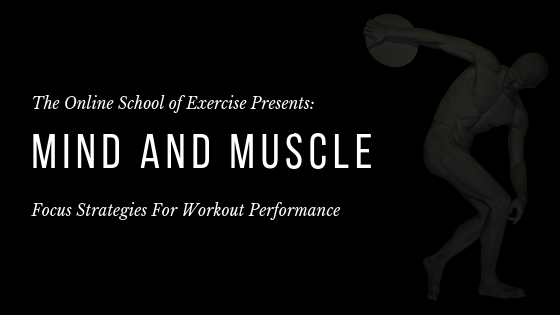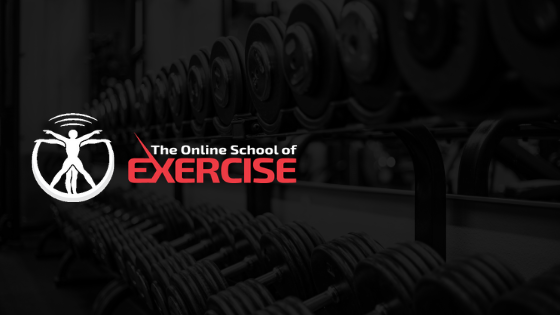The Best Focus Tip for Your Workouts
The mind-body connection is a notion wired into human wisdom. This link between the mental and physical dimensions has transcended the ages, from Ancient Greece to Rome, through the Renaissance, into the golden era of bodybuilding and today's social media world.
The timeless philosopher Plato connected the dots when he stressed the value of exercise to harmonize the mind and spirit. His observations would echo within gyms across the world after Arnold Schwarzenegger popularized the muscle-mind connection more than two thousand three hundred years later. The Oak knew that visualization could fire up a muscle against resistance and trigger growth. Recent studies confirmed he was right.
You might have read something on a popular fitness account about the need to feel a muscle when you exercise. Now, is this focus strategy the best choice for performance? A new Australian paper from the Frontiers in Sports and Active Living journal suggests otherwise.
This article explores two focus strategies to help athletes and novices exceed their potential in the gym.
Focus
The rise of chronic diseases has highlighted the need for an active lifestyle as a preventive measure. People know they need to move. American gyms attracted over 70 million Americans in 2018, according to the International Health, Racquet & Sports Club Association.
Weightlifting has a proven track record of benefits ranging from improved health markers and sports performance to a higher quality of life, muscle growth, along with increased strength. Years of applied wisdom and scientific inquiry conceived the advanced knowledge available today, yet the psychological aspects of the practice remain in the dark. Results take time to appear, and adherence to a program is a challenge faced by many along the way.
Further understanding of the mind's role in exercise would help gym members and professionals reap more out of their workouts. David L. Neumann is an Australian Applied Psychologist who set out to study the matter. His recent work published in the Frontiers in Sports and Active Living reviewed sixteen papers on the role of visualization in performance. The extensive research sheds new light on a vital topic.
Lose Your Focus
Put yourself in the shoes of an exercise novice. Now imagine hiring a professional to learn how to squat and improve your body composition.
You show up at the gym, nervous, yet ready to work. The music is loud and the room full of people, a scent of iron and rubber in the air. Your drill sergeant-looking trainer greets you with an overly firm handshake. He introduces himself as Stan McPump.
Everything seems fine until you get to the squat rack. Stan first shows you a video of him with half a ton on his back, eyes bulged out, yelling at the top of his lungs. He proceeds with a long list of cues on how to do motion properly, what to avoid, and which muscles to "activate."
"Are you ready!?"
His instructions were unclear, but you didn't want to sound inattentive. The first rep feels fine. Stan disagrees. He repeats the long list of cues and tells you to brace your core.
"Okay."
You do a few more reps. Stan is unsatisfied and gets more upset as the set progresses.
"Are you listening to me?!" He barrages the cues louder and reminds you to activate muscles you've never heard of before. You feel mentally drained, uninspired. The workout ends, at last. You head home, and never see Stan McPump again.
Meet Your Focus
Everybody holds finite stores of energy. Think of money in a bank account. Your brain taps into the same reserves as your body to fuel its functions and will use about 20% of your total energetic resources, more than any other organ.
The execution of any movement has a mental and physical cost. Some of your energy capital goes to your muscles and fuel contractions, while other funds supply the brain processing and signalling that orchestrates the execution.
Attentional focus is the use of mental resources towards instructions during sports or exercise, mindset included. Every cue or conscious attention has an energetic price. Adverse results happen if the demand exceeds someone's supply, such as when Stan McPump crashed the beginner's system with his exhaustive approach.
A sound attentional focus strategy helps novices learn new movements and promotes adherence to an exercise plan. Athletes and seasoned lifters develop an efficient, resilient mental system through years of practice coaching, perhaps aided by natural talent. The stakes are different in this case. Attentional focus serves to fine-tune performance.
Scientists define this factor along two main dimensions. External focus refers to attention on factors away from the body, such as barbell speed or movement smoothness. Internal relates to the visualization of a specific muscle during a rep.
Neumann's work examined the impact of these strategies on metrics ranging from weight lifted to muscle activity, movement execution, and sports performance, amongst others. His findings confirm that internal muscle-mind visualization is a sound muscle growth strategy. Arnold Schwarzenegger knew from experience what scientists confirmed years later. Studies measured increased muscle activity when subjects focused their attention on it during a lift. This added stimulation is a potent factor for muscle growth.
Now, things change when you aim your attention outside of the body. External focus strategies proved better for other performance metrics. Subjects who concentrated on factors like the speed of the barbell or the smoothness of the execution reported positive outcomes, from heavier weight lifted to improved motion efficiency. The author suggests that this method tunes the body into an automatic execution state. His analysis noted lower muscle activity, yet higher peak torque and force production, along with improved motion mechanics.
Focus inward when your goal is muscle growth. Bring your attention to external factors to connect with your intuitive movement system for better performance. Both have a time and place in your long-term workout strategy.
Your focus has the potential to influence your training effect. Use these mental resources wisely. My experience has taught me that some people have a poor muscle-mind connection. They are unable to access specific fibres as they execute multi-joint movements. Slower repetitions help them assimilate every cue as they practice. Keep in mind that individual needs vary from one body to the other.
Use Your Focus
Performance remains a complex topic with webs of factors and unknowns at play. The author does present limitations to the studies he examined and acknowledges the need for further research. His conclusion raises essential questions to ask yourself:
How do I use my mental resources when I train? Perhaps you never paid attention and missed out on better results.
What happens when I focus on a specific muscle throughout a lift? Best apply this strategy when growth is what you seek, such as in an Accumulation phase at The Online School of Exercise.
How do I perform when I focus on external factors? The scope of evidence examined in the research showed this attentional strategy produced better performance results.
These questions are useful for athletes who have hit developmental plateaus and seek excellence in their sport. They can also help novices learn new movements and reap better outcomes. Better results promote adherence for everybody.
Apply this information to yourself and see how your body responds. Students of The Online School of Exercise learn to external attention focus through tempo control, which is the speed of a repetition. Maximize your mental resources. Invest your attention in the right place to reap the most out of your workouts. The proper focus strategy will pay off over time.
Other References
Title Image - Discus Throw. Retrieved from https://www.britannica.com/sports/discus-throw/media/1/165505/230124
Gym Market Research & Industry Stats 2019 [Inc Membership Statistics]. (2019, August 19). Retrieved from https://www.wellnesscreatives.com/gym-market-statistics/
Westcott, W. L. (2012). Resistance Training is Medicine. Current Sports Medicine Reports,11(4), 209-216. doi:10.1249/jsr.0b013e31825dabb8 https://www.ncbi.nlm.nih.gov/pubmed/22777332/
How Much Energy Does the Brain Use? (n.d.). Retrieved from https://www.brainfacts.org/Brain-Anatomy-and-Function/Anatomy/2019/How-Much-Energy-Does-the-Brain-Use-020119





